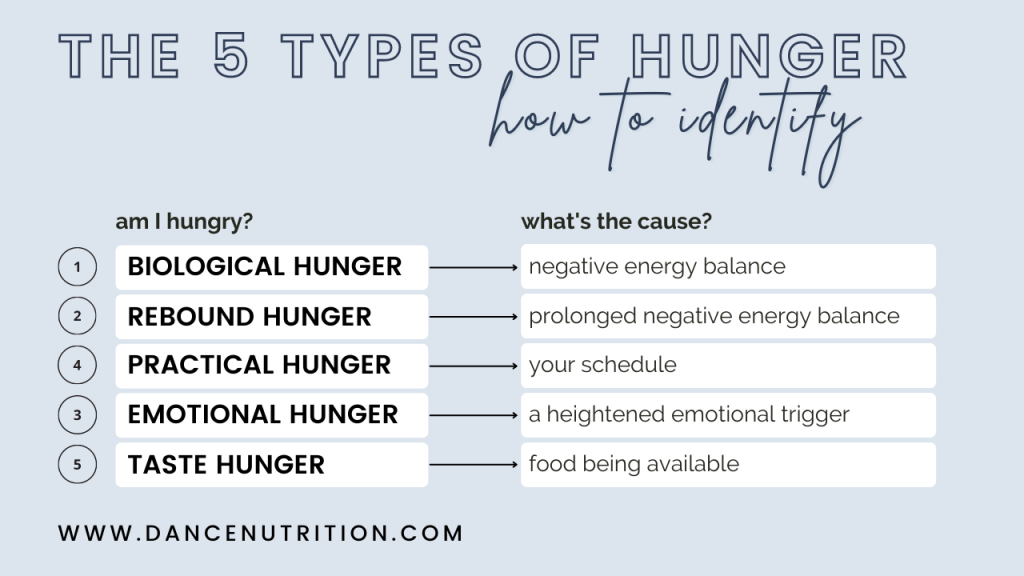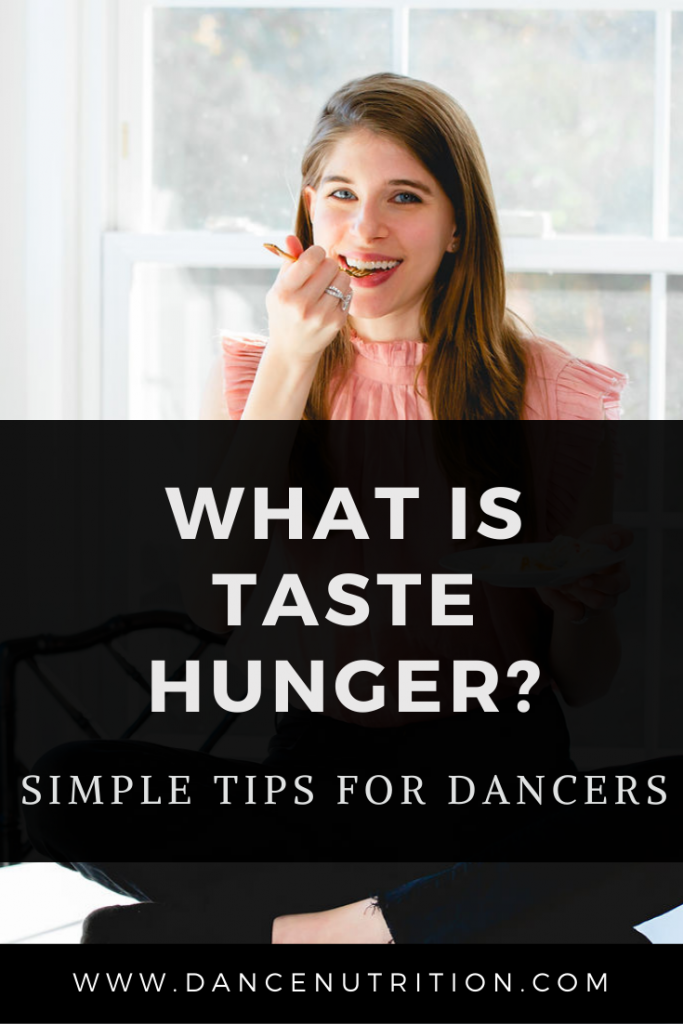We’ve all had moments when we need to eat, but not because we’re physically hungry—it’s because something simply *sounds* or *tastes* good. This is what we call taste hunger, and unlike physical (or biological) hunger, it’s driven by the pleasure of eating.
I’ve previously discussed identifying biological hunger and what to do when your biological hunger cues go missing. But what about when you want to eat simply because you enjoy the taste of a particular food? In this blog post, we’ll break down what taste hunger is, why it happens, and how to navigate it supportively.
What Is Taste Hunger?
Taste hunger is one of the five different types of hunger that we can experience. To recap, these include:

- Biological (physical) hunger.
- Rebound hunger.
- Practical hunger.
- Emotional hunger.
- Taste hunger.
Taste hunger occurs when you desire the flavor or experience of eating without needing to eat for physical reasons. Your desire to eat is rooted in food availability, whether or not your stomach is growling. Here are examples:
- Reaching for a cookie right after a meal, despite feeling full.
- Craving salty popcorn because you’re at the movies, even though you’ve recently eaten.
- Feeling the urge to eat something because it smells amazing.
What Drives Taste Hunger?
There can be many different reasons why we experience taste hunger. Sometimes, it’s your brain seeking sensory stimulation. The smell, sight, or thought of food can trigger cravings even when your stomach doesn’t signal a need for energy. For example, I finding new recipes and formulating new snack combos for dancers. Because of this, my taste hunger shows up quite often. Without feeling too hungry or too full, the mere experimentation of a delicious snack often sparks my taste buds to want some.
Taste hunger also shows up when we’re offered free food (for example, snacks on an airplane) or food at a social event (like dessert after a big meal). When food is free, it’s enticing to take advantage of it. Food is also tied to comfort, celebration, and nostalgia— like emotional hunger— and can spike during times of joy or stress.
Navigating Taste Hunger
Eating during these instances is completely normal and even encouraged. Avoiding taste hunger can lead to growing cravings— eventually, cycling into feeling out of control around food. Recognizing and labeling taste hunger is the first step. Instead of feeling bad about wanting a treat, remind yourself that it’s normal to crave foods just because they taste good.
But there’s a caveat: always consider how you’ll feel, physically. If you’re at the point of comfortable fullness, then waiting to eat might be a better option. Food generally tastes better when we’re physically hungry. If you choose to satisfy taste hunger, do so mindfully. Take time to enjoy the flavors, textures, and experience. Slow down and focus on the satisfaction food brings you. By paying attention, you’re more likely to honor fullness cues. Navigating taste hunger isn’t about trying to suppress it, but rather, making space for these experiences within an overall balanced eating plan.
Reflection: Evaluate The Aftermath
When honoring taste hunger, do you find yourself consistently eating past a comfortable level of fullness? Or, does your taste hunger turn into a version of rebound hunger? Recap: rebound hunger is the temporary increase in biological hunger cues resulting from prolonged restriction… in other words, you’re ravenous. If your baseline is under-fueled, you may be experiencing biological hunger and confusing it with taste hunger. This is common. Diet culture sets the bar low for what we know to be enough food. Take “100-calorie snack packs” as an example. While I don’t encourage anyone to calorie count, you should know that a 100-calorie snack is not nearly enough for anyone!
Key Takeaways
It’s important to honor taste hunger, but first, prioritize regulating biological hunger through consistent meals and snacks. Take a moment to assess whether you’re physically hungry or if it’s purely taste hunger. If it’s the latter, ask yourself: “Am I craving this because I’m bored, stressed, or simply because it smells good?”
If you are eating when bored or stressed, dig deeper. These tendencies may reflect a need to build supportive coping tools around emotional distress. Here’s an article that uncovers more on the topic. Last, compassionate curiosity Rather than beating yourself up for eating without feeling hungry or eating past fullness, you’re exploring the reasons for why it occurred.



